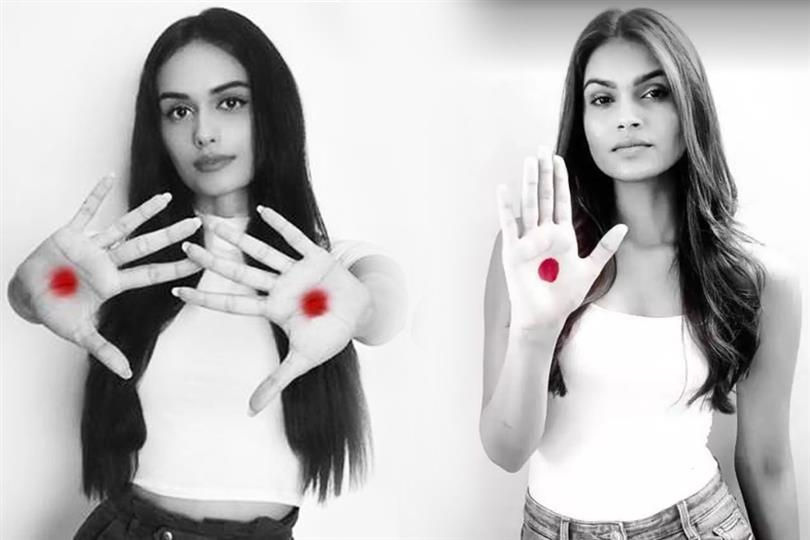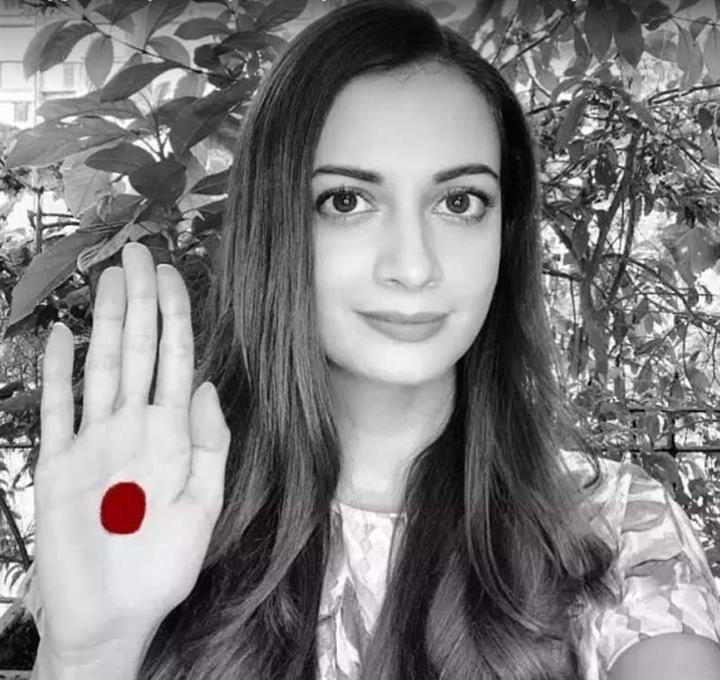28th May is known as World Menstrual Hygiene Day and former Miss World Manushi Chhillar on Thursday underlined the need to spread awareness on feminine hygiene. The beauty queen was roped in by UNICEF to spread awareness on the need to educate girls on personal hygiene.
She stated, “Every young girl has the right to accurate information about her body. Without the right information, girls often don’t know how to safely manage their period. It’s time to break the silence. I am calling all girls, boys, women, and men to take the #RedDotChallenge with me. Because Menstruation Matters.”
The diva has stressed on the fact that the young girls should be educated and normalize the information on maintaining hygiene, constructing adequate sanitation facilities, and providing quick access to feminine hygiene products. Along with the post, Manushi shared her pictures with red dots on her hand representing the 'Red Dot Challenge.' The former Miss World runs her own initiative on menstrual hygiene called 'Project Shakti' that works across several states of India. “I started Project Shakti and through that, I educated women about menstrual hygiene as that's one because I really feel for.” Project Shakti is a non-profit program dedicated to raising awareness about feminine sanitation, and team with the locals to make biodegradable pads.

Manushi Chhillar has also joined hands with other Miss Worlds in an initiative to raise awareness about coronavirus and discuss how to battle the stigma of infection that is on the rise. Along with her, Miss World 2018 Vanessa Ponce (Mexico) and Miss World 2016 Stephanie Del Valle (Puerto Rico) have also decided to come together and talk about the ongoing issue. The three former Miss World beauties will discuss the importance of mental health during this time and how to battle the stigma of COVID-19 that has been set in the minds of people.
Beauty queens and celebrities like Dia Mirza, Suman Rao, Neha Dhupia, Neha Jaiswal, Aavriti Choudhary and many more took part in this challenge to generate awareness. The red dot challenge was initiated by the German-based NGO WASH United in 2014 and aims to benefit women and girls worldwide.

Miss World 2019 Second Runner-up Suman Rao stated, "For how long are we going to treat menstruation blood as a shame. It’s time to normalize it and put an end to period shaming. To have an open conversation about menstruation and educate people around us to stop the discrimination. Let's stand together and break this taboo! Today on World Menstrual Hygiene Day, I urge all men, women, boys, and girls to take the #RedDotChallenge with me. Because Menstruation Matters.”
Miss Asia Pacific 2000 Dia Mirza, stated, “Not only do we need to put a period on shaming the period, we must ensure we switch to using sustainable products that protect our health and the health of the environment. I use biodegradable sanitary napkins. Many have started using menstrual cups and re-usable/washable cloth napkins. These products need to be made easily accessible and cost effective so many more women can benefit from personal hygiene that secures their health and protects our planet. #DYK regular sanitary napkins are made mostly of plastic? This plastic lasts in the environment for hundreds of years. Most often sanitary napkins are incinerated and are a source of toxic waste. Spread the word and be the change.”
The aim of this Red Dot Challenge is to break all the taboos surrounding menstruation and menstrual health. Manushi also urged the government to include the sanitary pads for women in the list of essential items. She addresses that women from the families that fall in the lower strata of income are at high risk due to shortage of funds. The crowned beauty is reaching out to different organizations to make sanitary napkins available to underprivileged women, free of cost. She also appeals to the government for support to maximize the reach and minimize the health risk.